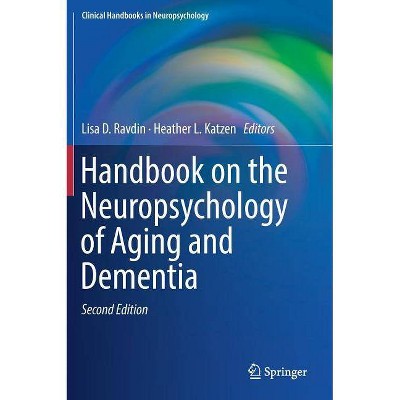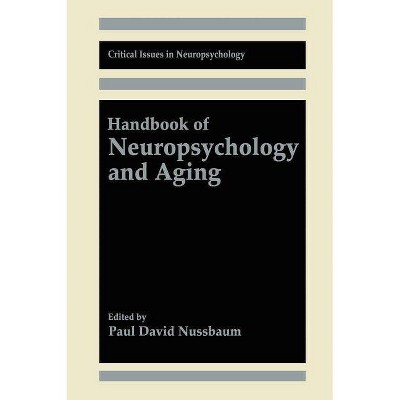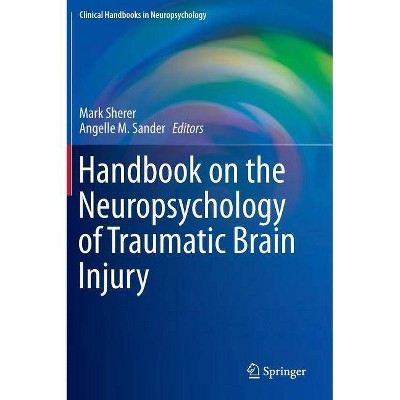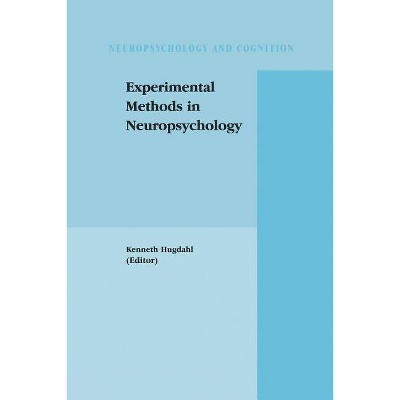Handbook of Medical Neuropsychology - by Carol L Armstrong & Lisa Morrow (Paperback)
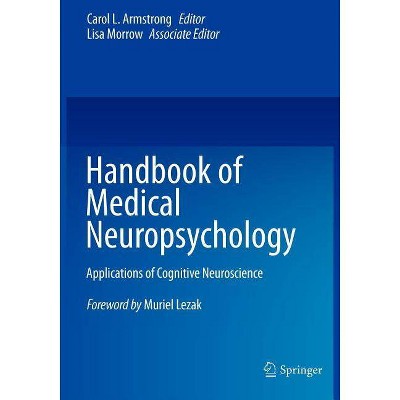
Similar Products
Products of same category from the store
AllProduct info
<p/><br></br><p><b> About the Book </b></p></br></br>Comprehensive in scope and highly detailed, the <i>Handbook of Medical Neuropsychology</i> provides readers with an overview of the field, encompassing clinical evaluation, research study design and disease processes. Topics are presented with clear explanations, clinical expertise, and real-world insight.<p/><br></br><p><b> Book Synopsis </b></p></br></br>This handbook celebrates the abundantly productive interaction of neuropsychology and medicine. This interaction can be found in both clinical settings and research l- oratories, often between research teams and clinical practitioners. It accounts for the rapidity with which awareness and understanding of the neuropsychological com- nents of many common medical disorders have recently advanced. The introduction of neuropsychology into practice and research involving conditions without obvious neurological components follows older and eminently successful models of integrated care and treatment of the classical brain disorders. In the last 50 years, with the growing understanding of neurological disorders, neuropsychologists and medical specialists in clinics, at bedside, and in laboratories together have contributed to important clinical and scienti c advances in the und- standing of the common pathological conditions of the brain: stroke, trauma, epilepsy, certain movement disorders, tumor, toxic conditions (mostly alcohol-related), and degenerative brain diseases. It is not surprising that these seven pathological con- tions were the rst to receive attention from neuropsychologists as their behavioral symptoms can be both prominent and debilitating, often with serious social and economic consequences.<p/><br></br><p><b> From the Back Cover </b></p></br></br>The recent surge of interest in the neuroscience of autism, HIV/AIDS, cancer, Alzheimer's, and other disorders has brought with it an increasing awareness of the effects of medical conditions on the brain and behavior--an awareness extending through the research and practice arenas, among those working with pediatric and adult clients alike. Comprehensive in scope and highly detailed in its coverage, the Handbook of Medical Neuropsychology is organized to give readers knowledge of the field, whether one needs to understand a clinical evaluation, design a research study, or gain a deeper understanding of disease processes and corresponding behaviors. Featuring the most up-to-date information on cognitive neuroscience to enhance the work of the practitioner, the student, or the researcher, the book handles theory, historical background, practical considerations, and controversial areas with clear explanations, clinical expertise, and real-world insight, and critiques diagnostic and assessment tools specific to disorders. The wide selection of commonly seen and rarely encountered diagnoses covered includes: -Primary nervous system disease and injury. -Vascular system disease. -Developmental, genetic, and structural disorders. -Dementia and normal aging. -Immune-related disorders. -Endocrine disease. -Metabolic conditions. -Plus a chapter on current and emerging approaches to rehabilitation. Opening out a specialty as it grows in importance, the Handbook of Medical Neuropsychology is an essential resource for the neuropsychology clinician, researcher, or graduate student. It will be stimulating and relevant reading for years to come.<p/><br></br><p><b> Review Quotes </b></p></br></br><br><p>From the reviews: </p><p>"'Handbook of Medical Neuropsychology: Applications of Cognitive Neuroscience' edited by Armstrong and Morrow (2010) with chapters on topics ranging from learning disabilities to rehabilitation. And, as the reader will find, many chapters within this volume provide a detailed review of a subsample of these newer applications. ... Those interested in Autism will find a nice review of imaging advances ... . the reader will also find a succinct review of the imaging modalities and what they measure. ... this volume is an ambitious and important." (Deborah M. Little, Archives of Clinical Neuropsychology, Vol. 27, 2012)</p><p>"This book explores some of the most common ones that neuropsychologists should be aware of when assessing individuals with cognitive complaints. The aim is to provide comprehensive and current information on the neuropsychological sequelae of common medical conditions. The book is intended for students, clinicians, and researchers in neuropsychology and related fields." (Christopher J. Graver, Doody's Review Service, September, 2012)</p><br><p/><br></br><p><b> About the Author </b></p></br></br>Carol L. Armstrong is a neuropsychologist conducting cognitive neuroscience research. Her long-term interests are the study of memory and attention, and the cognitive processes affected by white matter disease or injury. Investigations have focused on resource-limited memory and attention processes, and on the structural distribution of the white matter measure in normal and injured brains. Recent investigations include the longitudinal damaging effects of radiotherapy and brain tumors in both children and adults, as shown by longitudinal, prospective studies of cognition and neuroimaging of white matter integrity, and response of the hippocampus to radiotherapy. Current studies are being conducted on the functional and structural significance of cerebellar connections with the cortex.
Price History
Price Archive shows prices from various stores, lets you see history and find the cheapest. There is no actual sale on the website. For all support, inquiry and suggestion messagescommunication@pricearchive.us

